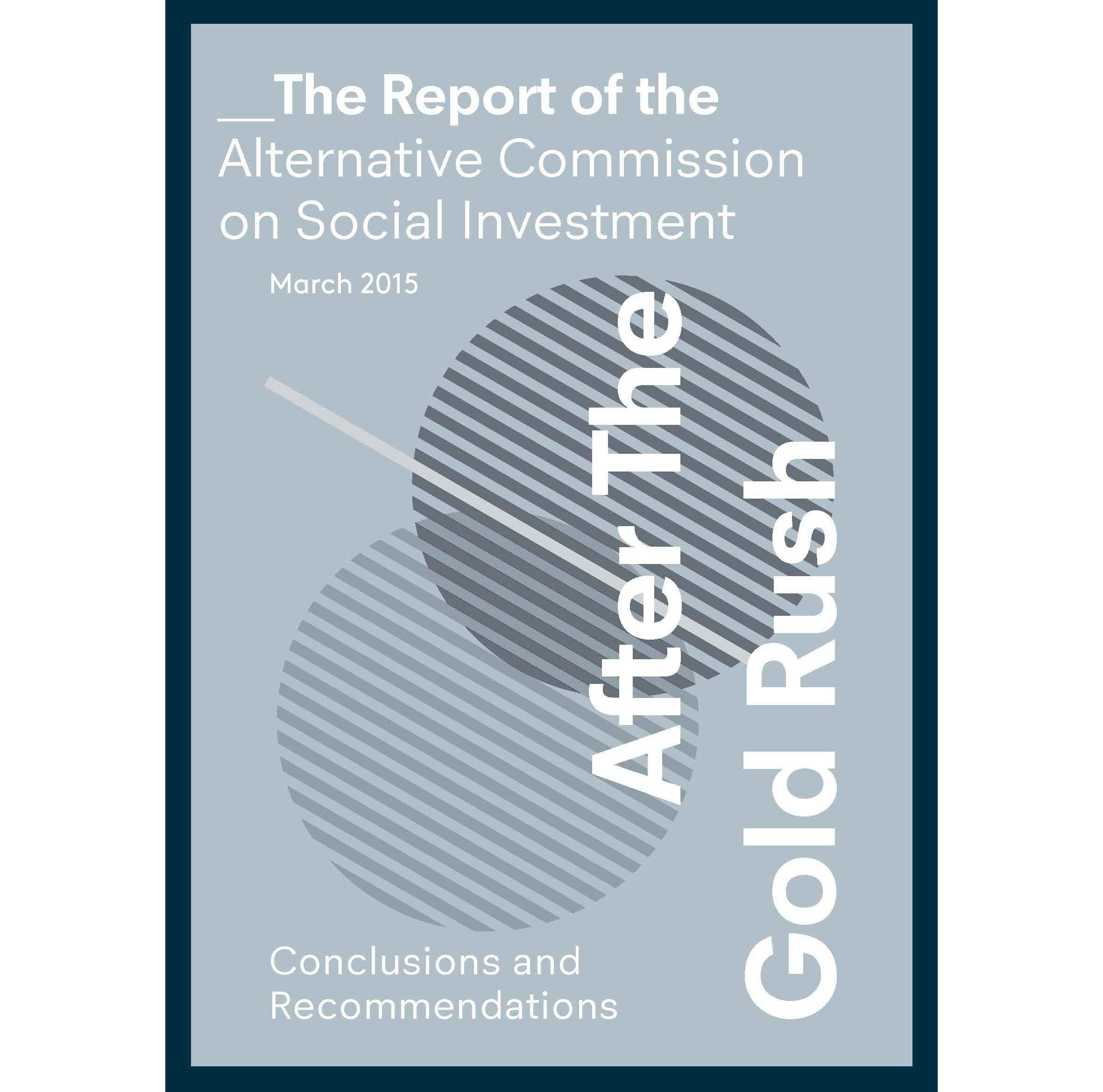Social investors need to be more transparent about the investments they make according to a new report on social investment by the Alternative Commission on Social Investment. ‘After the Gold Rush’ also calls for better tools to help charities and social enterprises rate their experiences of social investors, and a reconsideration of the role of Big Society Capital, so that it is focussed on “prioritising its impact over its own existence”. Commission team leader David Floyd said: “We often hear from ministers, champions of social investment and the G8 that the UK is a world leader in social investment. Yet for charities and social entrepreneurs here in the UK, it doesn’t feel like that.” He continued: “The Alternative Commission on Social Investment was set up to ask why and to make some practical suggestions as to how things could be improved.”
The report ‘After the Gold Rush’ makes 10 key recommendations focused on five key areas (in bold) :
Transparency – Publish information on all social investments across all investors – with investees anonymised if required (Big Society Capital, SIFIs, the Social Investment Forum).
Explain if and how social value is accounted for within your investments – do you expect investees to demonstrate their impact as a condition of investment? Do you offer lower interest rates based on expected impact? Are you prepared to take bigger risks based on expected impact? (Big Society Capital, SIFIs)
Wholesale changes – Reconsider the role of Big Society Capital – prioritise building a sustainable and distinctively social investment market over securing a sustainable existence for Big Society Capital – (Big Society Capital, Cabinet Office)
Consider splitting the investment of Unclaimed Assets and Merlin bank funds. Unclaimed Assets, allocated by law to Social Sector Organisations, could be invested on terms that better meet demand than currently, while Merlin bank funds could be invested in a wider group of organisations, with a focus on positive social value – (Big Society Capital, Cabinet Office)
Social investment is dead! – Minimise all forms of social investment hype that might inflate expectations and under no circumstances imply that social investment can fill gaps left by cuts in public spending (Cabinet Office, DWP, MoJ, HM Treasury, Big Society Capital, Big Lottery Fund, NCVO, ACEVO, Social Enterprise UK)
Avoid treating the development of the social investment market as an end itself – social investment is a relatively small phenomenon overlapping with but not the same as ‘access to finance for social sector organisations’ and ‘increasing flows of capital to socially useful investment’. These wider goals should be prioritised over a drive to grow the social investment market for its own sake – (Cabinet Office, Big Society Capital)
Long live social investment! – Work together in equal partnership with the social sector to develop a set of principles for what makes an investment ‘social’ – (Policymakers, Big Society Capital, Key Stakeholders, SIFIs, Umbrella bodies, the Social Investment Forum, SSOs)
Social investors should better reflect and understand the market they are seeking to serve by getting out and about, meeting a broader range of organisations – particularly organisations based outside London – recruiting from the sector and cutting costs that deliver no social value – (SIFIs)
Doing it Ourselves – Create a ‘Compare the market’/’trip advisor’ tool for social investment – enabling organisations to rate their experiences and comment – (Umbrella bodies and SSOs)
Back yourselves and invest in each other – Social sector organisations should consider cutting out the middleman and developing models where they can invest in each other, where legal and appropriate – (SSOs).
A 20-page summary of the full report (which is 94 pages long) can be read here.

